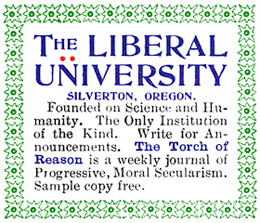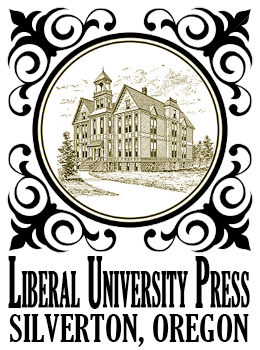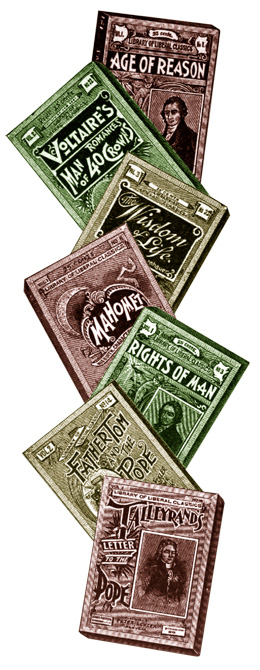By George Jacob Holyoake — November, 1900
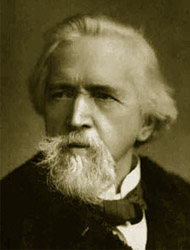 The term “Agnostic” is only of mid-century growth, but it marks the development of accuracy of thought in the nineteenth century as no other term does. Agnosticism means discernment as to the extent of personal knowledge, and veracity in stating it when discerned. Theism, Atheism, and Agnosticism denote attitudes of thought in relation to the existence of a Supreme Cause of Nature. The Theist declares, without misgiving, that there is such an existence. The Atheist, without misgiving, declares there is no such existence. The Agnostic, more modest in pretension, simply says that, having no information on the subject, he does not know. He does not say that others may not have knowledge that there is, or knowledge that there is not, such a Primal Entity; he merely says that he is without that information. Nor does he find from what Theists and Atheists say that their knowledge goes beyond conjecture. For their belief, or disbelief, they may have the confidence of inference. But inference is not knowledge. Knowledge is proof and understanding. The Agnostic neither believes nor disbelieves in a Supreme Existence, from lack of satisfying evidence to warrant affirmation or denial. He is neutral, not because he wishes not to believe, or desires to deny, but because language should be measured by proof and conviction.
The term “Agnostic” is only of mid-century growth, but it marks the development of accuracy of thought in the nineteenth century as no other term does. Agnosticism means discernment as to the extent of personal knowledge, and veracity in stating it when discerned. Theism, Atheism, and Agnosticism denote attitudes of thought in relation to the existence of a Supreme Cause of Nature. The Theist declares, without misgiving, that there is such an existence. The Atheist, without misgiving, declares there is no such existence. The Agnostic, more modest in pretension, simply says that, having no information on the subject, he does not know. He does not say that others may not have knowledge that there is, or knowledge that there is not, such a Primal Entity; he merely says that he is without that information. Nor does he find from what Theists and Atheists say that their knowledge goes beyond conjecture. For their belief, or disbelief, they may have the confidence of inference. But inference is not knowledge. Knowledge is proof and understanding. The Agnostic neither believes nor disbelieves in a Supreme Existence, from lack of satisfying evidence to warrant affirmation or denial. He is neutral, not because he wishes not to believe, or desires to deny, but because language should be measured by proof and conviction.
In the beginning of this century all theological thought was wild, and those who rejected theological tenets often expressed their dissent in extreme terms. The theologians flung opprobrious epithets of “Infidel or “Atheist” with Pauline profusion at all who were indisposed to accept their dogmas. That there could be honest doubt, or degrees of honest dissent, seldom, if ever occurred to them. They were too impetuous to choose their words, too bigoted to examine into their truth, and too intolerant to believe in the sincerity of their adversaries. Sometimes even Freethinkers are in-discriminating and unjust in their accusations.
An instance occurred lately in the Free Thought Magazine which honorably admits the freest expression of opinion on the part of contributors. One is a lady who has vigor of expression, and, what are better, flashes of originality, until she comes to Agnosticism, when distinction in thought fails her, and she accuses like a priest. This lady, Marie Harrold Garrison, is a real person, very pretty and engaging, as she appears in the portrait given with her article (“Weeds and Agnostics” – October, 1900), in which occurs this strange passage:
“I often feel vexed at Mr. Huxley for having invented the word ‘Agnostic’; it is such a shield for ‘dodgers,’ and I notice that the men who dodge behind it are the very ones who really have arrived at the safest and most logical conclusions, and can give the clearest definitions of things. I take it that Dr. Gregory and George Jacob Holyoake belong in the same category, and what we ordinary folk need to do is to corner them right in, and ‘make them tell,’ as the children say.”
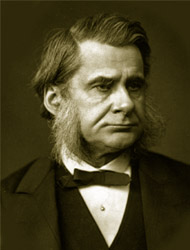 This means that Huxley (left) invented a sheltering term for hypocrites and cowards-he being neither one nor the other, but an open detester of both. His wise, useful, and honest word “Agnostic” has done more to teach theologians to think, and to incite in them discrimination and tolerance, than any other term which has been added to the nomenclature of controversy this century. Has this lady never thought—has she never heard—does she not know, that to profess Theism is to pretend to possess infinite knowledge? Theism is an egotistical declaration that all the powers of this inconceivable universe have been ascertained, examined, and tested, and that its incapacity of self-existence has been found out by all-seeing, all-knowing Theistical detectives. Does she not know that, in like manner, the Atheist assumes that he has explored the whole infinity of worlds discovered, and knows all the possibilities of those undiscovered, and finds no traces anywhere of a Supreme Originating Cause. Is it “dodging” to refuse to identify yourself with the preposterous presumption of the Theist or Atheist? Is it not imposture in anyone to adopt a term which impl1es all-penetrating knowledge, when you know you have it not? Nature is too illimitable to he conceived, and the past is beyond all human experience.
This means that Huxley (left) invented a sheltering term for hypocrites and cowards-he being neither one nor the other, but an open detester of both. His wise, useful, and honest word “Agnostic” has done more to teach theologians to think, and to incite in them discrimination and tolerance, than any other term which has been added to the nomenclature of controversy this century. Has this lady never thought—has she never heard—does she not know, that to profess Theism is to pretend to possess infinite knowledge? Theism is an egotistical declaration that all the powers of this inconceivable universe have been ascertained, examined, and tested, and that its incapacity of self-existence has been found out by all-seeing, all-knowing Theistical detectives. Does she not know that, in like manner, the Atheist assumes that he has explored the whole infinity of worlds discovered, and knows all the possibilities of those undiscovered, and finds no traces anywhere of a Supreme Originating Cause. Is it “dodging” to refuse to identify yourself with the preposterous presumption of the Theist or Atheist? Is it not imposture in anyone to adopt a term which impl1es all-penetrating knowledge, when you know you have it not? Nature is too illimitable to he conceived, and the past is beyond all human experience.
Without giving this lady any trouble to interrogate me in “corner” or court, I am ever ready “to tell” what I think It is that Theism is an unreal and unprovable pretension; that Atheism is an equally wild assumption of impossible attainment—an assumption acquired in rivalry and exaggerated in resentment.
Huxley was for integrity in thought and speech. He was for scientific accuracy as far as attainable. His own outspokenness was the glory of philosophy and science in his day. He never denied his convictions; he never apologized for them; he never explained them away. Is it over his noble tomb that we are to write “Here Lies a Dodger,” because he invented an honest term to devote the measured knowledge of honest and modest thinkers?
I am an assistant editor of the Free Thought Magazine. Is this Magazine an organ of “dodgers?” “The Agnostic Annual,” of London—the first Annual that Agnosticism has had—is also, upon the authority of a pretty, unthinking critic, of the most self-confident city in the world, to regard it as the Annual Manifesto of Dodgers? In what niche in the temple of priestly falsehood was this accusation found?
There is a still more singular passage by the writer in question. She says:
“I must assert that such men as Darwin and Huxley and Wallace and Spencer and their ilk are not Agnostics, though modesty caused Mr. Huxley to invent the name, and apply it to himself.”
This means that these eminent men, upon whose lives no shadow of unveracity ever rested, all lie. They described themselves as Agnostics, but all the while they are not. Their modesty is a pretense. They are not to be believed on their word.
It is not because this particular lady says this that her allegations are cited here. In her it is mere mistakenness of the term “Agnostic,” which expresses the scrupulousness of truth, which she, on other subjects, respects and vindicates. She does not mean what she says, because she has not thought out the nature of what she writes upon; she does not, therefore, know the purport of her words. It is because there is a general impression among the uninformed and unthinking that the term “Agnostic” is a mask, and that behind it lurks Atheism, afraid to show its face. Such persons are not aware that Theism and Atheism have no logical existence, and that there is nothing to conceal. Agnosticism is judgment suspended, from lack of capacity to solve the mighty problem of the cause of eternity. The Theist and the Atheist have no doubt that they know the solution. But dogmatism is not demonstration. To the extreme all moderation seems fraudulent, and they distrust, not only the judgment, but the honesty, of all who do not go as far as themselves.
When the first French Revolution made a Society of Theophilanthropists possible a new and humane religion arose. Thomas Paine was one of its adherents. The reader would expect that freedom from imputation would be found amid the professors of philanthropy; yet they imitated the contemptuousness for all who did not accept their theophilosophy, from which they themselves had suffered from their priestly predecessors. They declared in their manifesto of faith that the principles of natural religion which they professed “no one can deny, unless he be insane or corrupt.” Sixty years later W. J. Fox, the greatest preacher of his day among Unitarians, declared, in his· work on ”Religious Ideas,” that Atheism was to be accounted for by some disease, of the mind or some deficiency of intellect. He was far from subjecting such unfortunates to any punishment or political disqualification; in fact, he defended their right to their opinions, but bespoke for them tenderness of treatment on account of their defect of understanding.
This serves to show how difficult it is for persons strongly persuaded of the truth of their own views to understand the veracity and competency of those who dissent from them. The Agnostic is free from this opinionative superciliousness. He knows that Theist and Atheist must have sufficient evidence of fact or inference before them to answer their requirements. The vehemence of their adhesions sufficiently shows that The Agnostic neither decries them nor disparages them, but frankly says he is not of their way of thinking. Their evidence is not sufficient for him, and he would lie if he pretended it was. By the simple word “Agnostic” he indicates that his scruples are those of truth.
When I was a young man I was one of a group who gave the public notice that “we warred not with the Church, but with the altar; not with the forms of worship, but with worship itself; not with the attributes, but the existence, of Deity.” So uncompromising a declaration of Atheism has not been made since, when myself and four of my colleagues were in prison we stood by that avowal. At that time I knew little about Atheism, but I well understood the right of the free publicity of Atheistic opinion and I defended that right. Because I defended the right it was concluded that I was of that opinion. If I defend the right to sell venison, it does not follow that I care to eat it; but others may like it, and I am for those having it who prefer it. But in those days no one believed in such distinctions, just as many now see no distinction between Agnosticism and Atheism. It is the wide distinction between knowing and not knowing.
The term “Agnostic” has changed the character of theology among all educated thinkers. Like Newton’s law of gravitation, or Darwin’s theory of development, the Agnostic question, “Are you sure?” comes into every mind. It begets tolerance when the difficulty of certitude is met. If men were to limit their words to what they know, three-fourths of all the literature of theology would have to be struck out. Thousands of differences of opinion would disappear as by magic if touched by the Agnostic wand of sureness.
Agnosticism means scrupulousness and truth.


